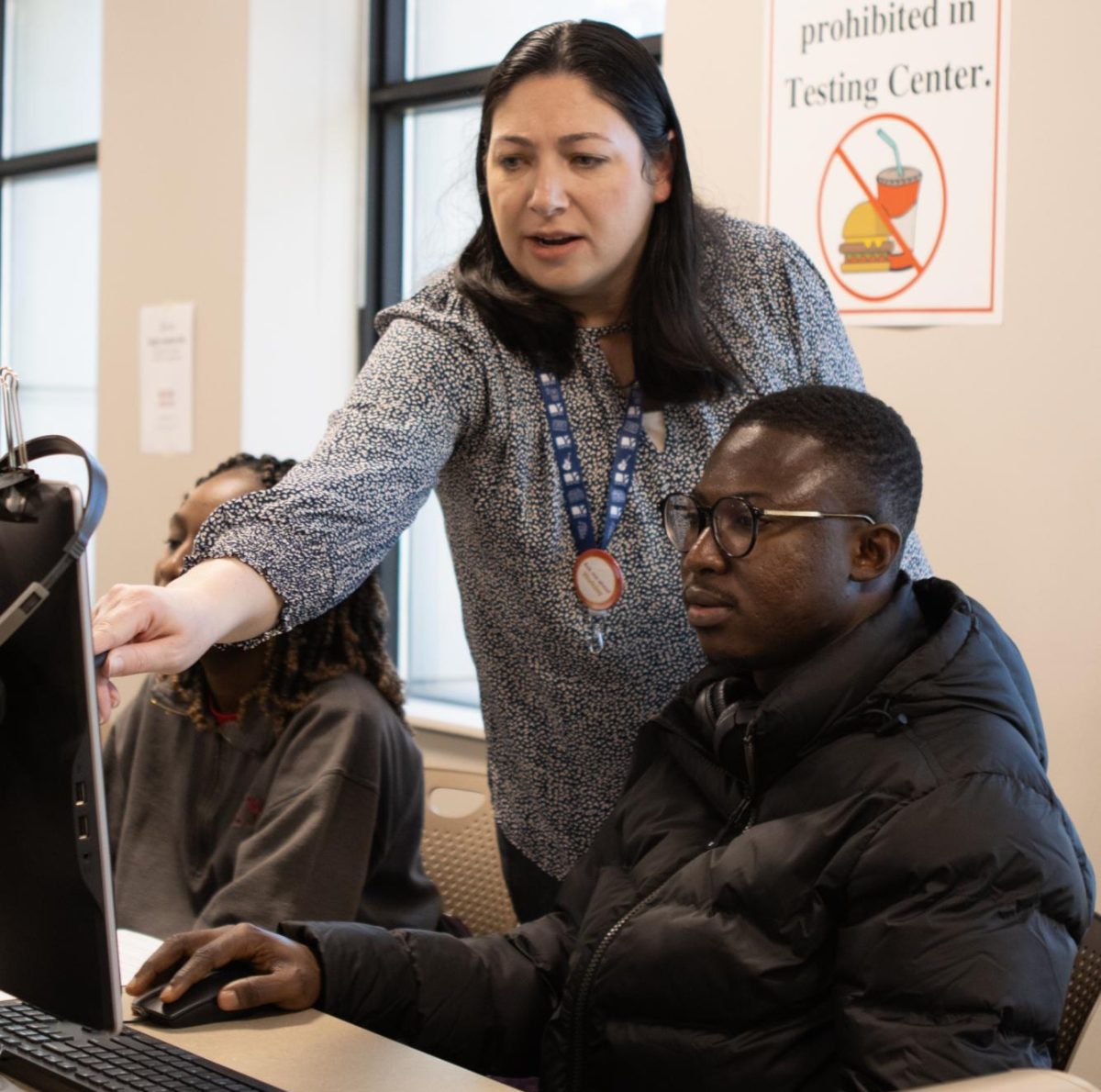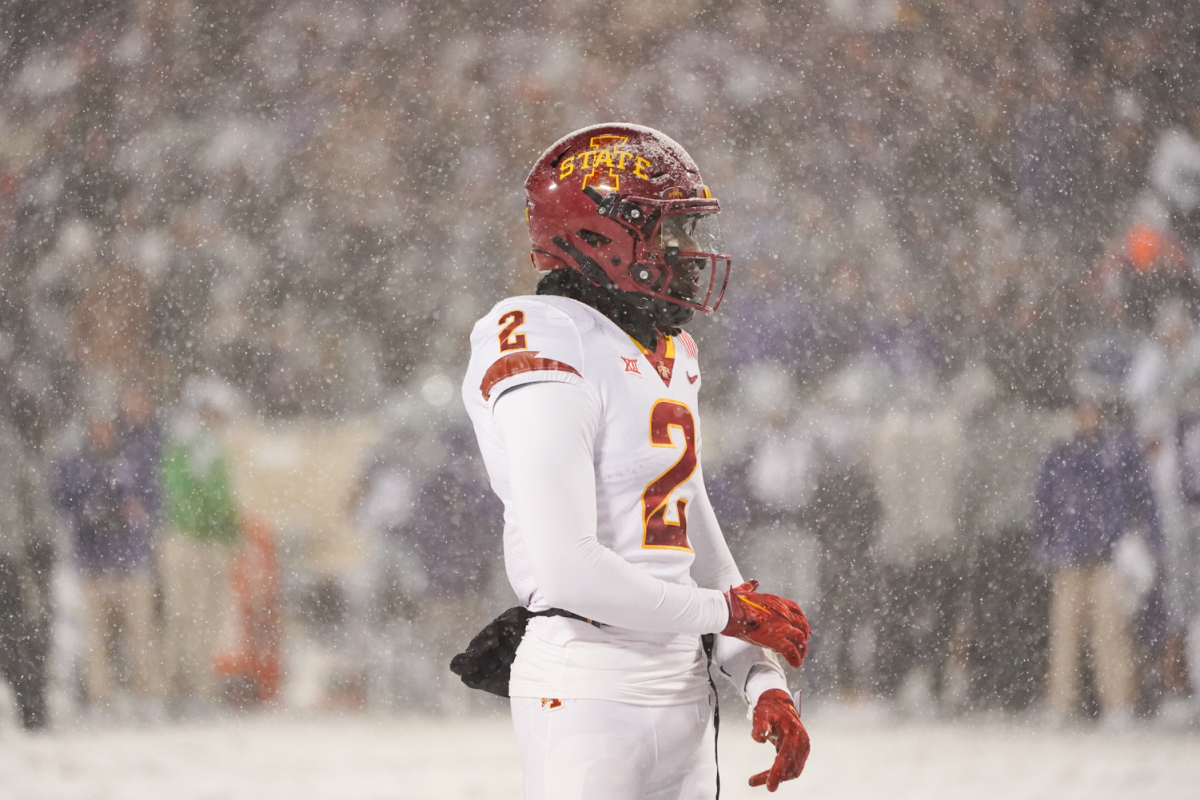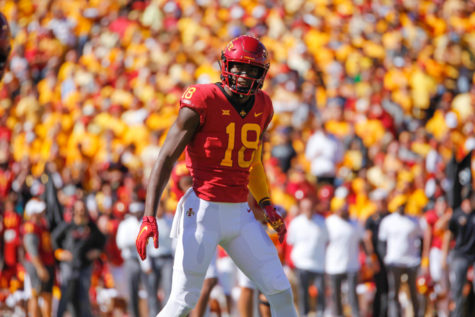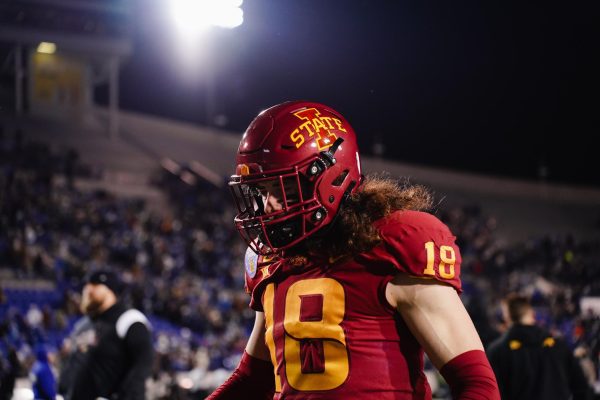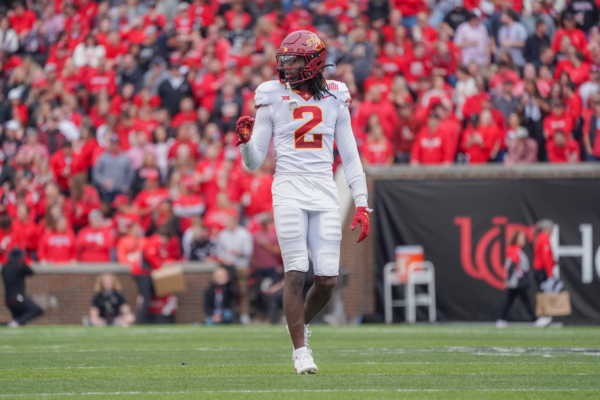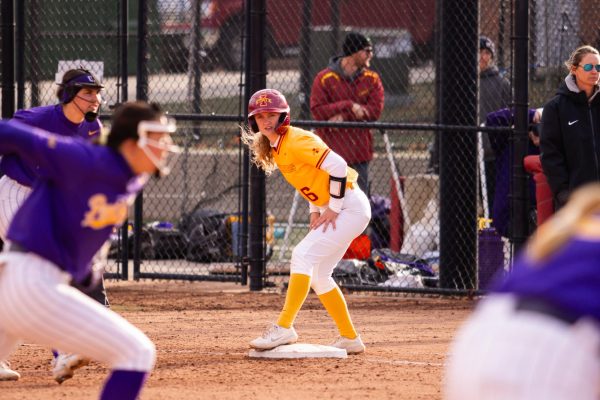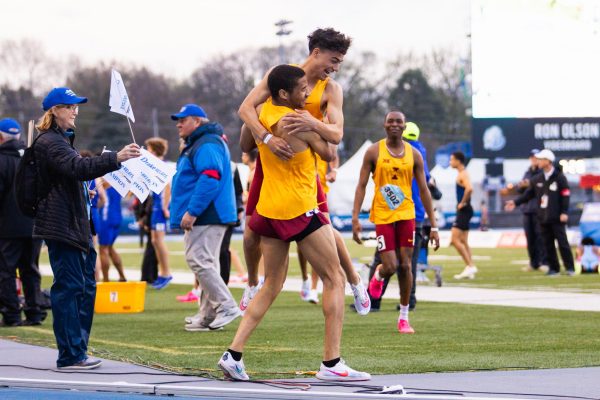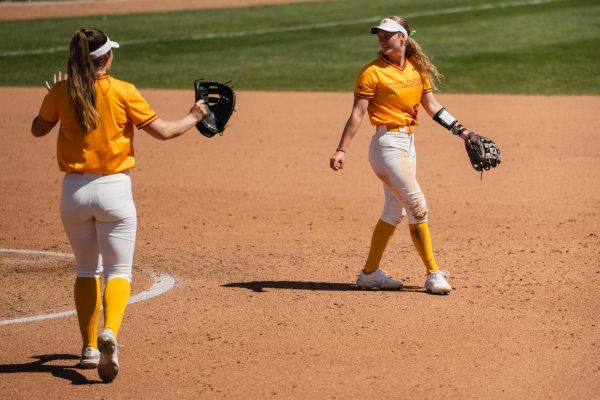Athletes wary of online personas
August 23, 2007
Two Iowa football players were arrested for allegedly using stolen credit cards in Iowa City on Sunday.
Soon after, pictures of 19-year-olds Dominque Douglas – the Hawkeyes’ leading receiver in 2006 – and Anthony Bowman holding handfuls of cash and liquor surfaced after they were taken from their Facebook profiles.
Since then, The Des Moines Register uncovered pictures on Facebook of five more underage Iowa players with alcohol.
The Iowa Hawkeyes, however, were not the only ones to make the incriminating mistake.
According to The Des Moines Register, starting ISU punter Mike Brandtner, 20, was pictured holding a beer can with a Budweiser box nearby. Projected to start for the Cyclones this fall, offensive lineman Doug Dedrick, 20, was allegedly pictured in front of a table with empty beer bottles at a bar with ISU special teams player Matt Purvis.
ISU Media Relations declined requests to interview Brandtner, Dedrick and coach Gene Chizik.
Athletic director Jaime Pollard said he was not involved with the handling of the informally indicted ISU football players.
Pollard said the Internet, along with advancing technology, continues to create new problems when it comes to college athletics.”We need to make sure that we are talking to the student athletes and reminding them that this is a reflection of them and us, and that they need to be thinking about what they are doing,” Pollard said. “Not only from a public relations side, but from a safety side.”
Kent State University and Loyola University in Chicago have both banned their student-athletes from putting profiles on Facebook. Pollard said the issues that technology, specifically social-networking sites, has been posing for collegiate athletes has been talked about in the athletics administration industry for four or five years.
He said the recent incidents are “probably more of a wake-up call locally for our student-athletes,” despite similar occurrences around the country.
“It’s technology. You used to say, ‘Be careful where you are at because somebody could take a picture of you.’ Well, now there is a place to go put that picture,” said Pollard, acknowledging the widespread use of camera phones. “Where before I used to be able to maybe send an e-mail to several people, now I can go post it in a public domain where someone can think that you were the one that posted it. Or your friends take it and send it to you and it is all over cyberspace. Who knows what tomorrow will bring.”
Pollard said coaches need to think about the use of the sites and instruct their athletes.
“We talk to the student-athletes all the time about you’re always on and you are always going to be held accountable for your actions, and this is just another avenue to be held accountable,” Pollard said. “It could be walking down the street, what you are wearing, how you talk to your professors, how you interact on your Facebook or MySpace.”
To Pollard, banning the use of such Web sites is not a solution.
“You can’t invoke policy you can’t enforce,” he said. “It is here and it’s not going away, and it is only going to become even greater in the future.”

